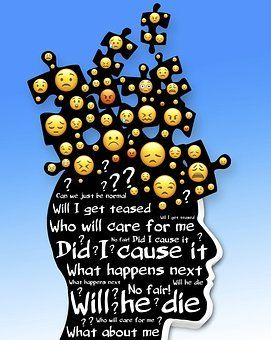Guilt
Survivor's Guilt and COVID-19
With others struggling, feeling too fortunate and guilty is normal.
Posted April 2, 2020 Reviewed by Matt Huston

I’ve been doing teletherapy for a few weeks now, checking in with my clients on how they are managing. Not unexpectedly, most are struggling with anxiety. For some their anxiety is a steady angst that they can't name, that rumples through their everyday lives; for others, their anxiety is clear and specific — worries about their jobs, or financial situation, the overall economy; about them or their immediate family becoming ill, or about how their elderly parents, three states away, are coping.
But some, less expectedly perhaps, are also talking about feeling guilty, some even using the term survivor’s guilt. Their jobs are, right now at least, still intact while many of their friends are suddenly out of work. So far they and their immediate and extended family are remaining healthy while coworkers are ill or they hear about the rising death tolls in New York. They have to quarantine but they are quarantined in a comfortable house with electricity, water, etc., compared to others in less-developed places, prisons, or refugee camps where folks are crowded together, had little comforts to begin with, and now things can only get drastically worse.
This is a different form of survivor’s guilt, but a form of survivor’s guilt nonetheless. A first-world problem, perhaps, in the bigger scheme of things, but still a problem to address. Some suggestions:
Realize that your reaction is normal
We are social creatures, a majority of us are naturally empathic and sympathetic towards others, and in times of crisis, we identify more strongly to not only those close to us but with those in our extended human family. This is rational guilt drawn from a healthy sensitivity to others, stimulated from an imposed violation of your own core values, a guilt driven by an awareness of the unfairness of life that we can’t explain and can’t control.
Support those close to you
This is about turning your guilt into productive and supportive action. Reach out to those friends who are now unemployed, offer what you can in the way of support. This is not about relieving your guilt, but rebalancing and putting your values and priorities back in line.
Pay it forward
Extend this to those outside your immediate circle. Here you work at the local food bank or send money to the IRC to help those in refugee camps. Does this make a huge difference in the big scheme? No. Does it make that bigger difference when combined with the efforts of others like you? Yes.
Realize you are not exempt
While it makes for good mental health to pause and appreciate what you have or recognize what you are fortunate to not have to struggle with now, life's challenges tend to be equal-opportunity. You may move through this current crisis unscathed, but realize that at some point down the line life may hand you your own challenge.
Do now for others what you may at some time need them to do for you.


